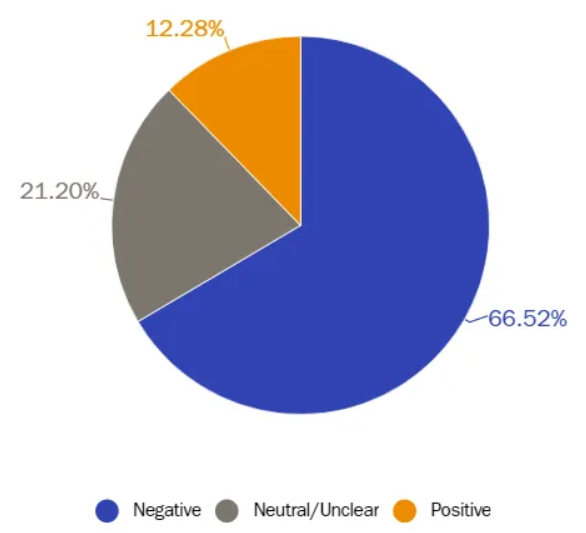# Understanding the Manipulation of CBDCs Through a Cautionary Tale
Written on
The Illusion of Freedom with CBDCs
The recent discussions around Central Bank Digital Currencies (CBDCs) raise significant concerns about governmental manipulation and societal control. Initially, authorities may impose minor restrictions that we feel compelled to accept, gradually leading us to a full surveillance state.

Source — YouTube
AI-assistive technology used
We routinely share our personal data whenever it aligns with our interests. From social media platforms like Facebook to credit card companies, healthcare providers, streaming services, online retailers, and search engines like Google, our information is constantly collected. However, the stakes rise when it comes to our finances, as financial advisors and planners seek to exert control through digital currencies.
If the government can justify limiting the number of guests at your Thanksgiving dinner due to a public health crisis, they won't hesitate to regulate your financial choices. The predominant concern voiced on platforms like Twitter is that CBDCs threaten personal privacy. This is because CBDCs mandate transactions within a centralized system, allowing authorities to monitor and control financial activities.
This situation mirrors the social conditioning tactics illustrated in the well-known psychological experiment by Gordon Stephenson, which serves as a cautionary tale about compliance.
The Monkey Experiment: A Lesson in Compliance
The study involving five monkeys placed in a cage provides valuable insights. A ladder with bananas was positioned in the center, but each time a monkey attempted to climb it, they were sprayed with cold water. Gradually, the other monkeys learned to prevent any climbing attempts, leading to a situation where no one dared to reach for the bananas.
When a new monkey was introduced, it instinctively tried to ascend the ladder but was met with forceful opposition from the others. Even though this new monkey had never experienced the water spray, it quickly adapted to the established norm of not climbing. Eventually, all original monkeys were replaced, yet the behavior persisted, leading to a situation where none could explain why they refrained from climbing. The rationale became lost over time; the response was simply, “That’s the way we do things.”
This narrative reflects a broader theme in society. We often adhere to norms without questioning their validity, even long after the original reasoning has faded. The introduction of CBDCs could create a similar environment, where individuals unwittingly become like the caged monkeys, subject to extensive government control and manipulation of their financial behaviors.
The Consequences of CBDC Implementation
With the capability to track every transaction, governments could influence behavior by rewarding or punishing specific financial actions. The gradual acceptance of such control is concerning, as it risks transforming individuals into compliant entities.
Polls revealing American sentiment about CBDCs highlight the stark divide between governmental perspectives and public opinion. While these digital currencies are designed to function like money used online, they are directly governed by the state, raising alarms among citizens.
The Federal Reserve's request for public feedback on its CBDC discussion paper drew thousands of responses, many of which expressed serious concerns. According to the Cato Institute's analysis, a significant portion of the public is opposed to the introduction of CBDCs, with 66% voicing worries about privacy, potential oppression, and disruption of the banking system.

Political Reactions to Public Concerns
In response to these anxieties, political candidates are beginning to address the public's stance on CBDCs. Ron DeSantis, a Republican presidential hopeful, proposed a bill to ban CBDCs in Florida, assuring voters they can continue using Bitcoin. Similarly, Robert F. Kennedy Jr., a Democratic candidate, has labeled CBDCs as tools of oppression, advocating for Bitcoin and minimal controls to prevent money laundering.
Kennedy articulates that CBDCs pave the way for financial enslavement and governmental tyranny, allowing the state to surveil all financial activities. He warns that CBDCs could impose transaction limits, effectively controlling where and how individuals can use their money.
Final Reflections
Ultimately, money serves as a formidable tool for control, paralleling the vital role food played in the monkeys' lives. There is a growing distrust toward centralized entities, and should CBDCs fail to gain public confidence, it could inadvertently fuel interest in cryptocurrencies like Bitcoin.
Interestingly, while the narrative surrounding the monkey experiment serves to critique blind conformity, it is worth noting that no scientific evidence substantiates the experiment itself. This irony underscores the importance of skepticism in our information consumption.
As we navigate discussions about CBDCs, political viewpoints, and emerging technologies, a critical approach is essential. This isn't about cynicism but about ensuring we think for ourselves.
Join my Free Newsletter today to receive daily insights.
This article is for informational purposes only and should not be interpreted as financial, tax, or legal advice. Always consult a financial professional before making significant financial decisions.